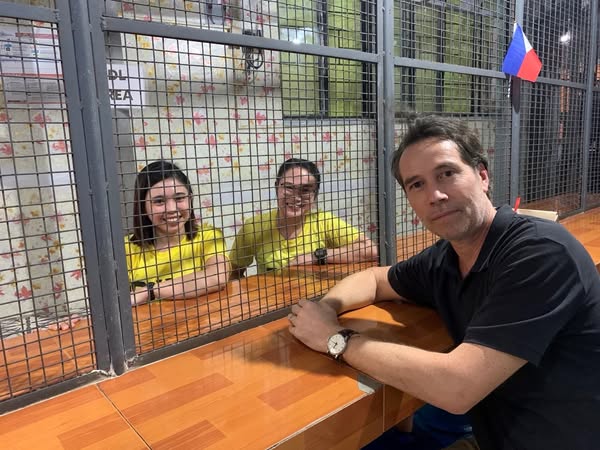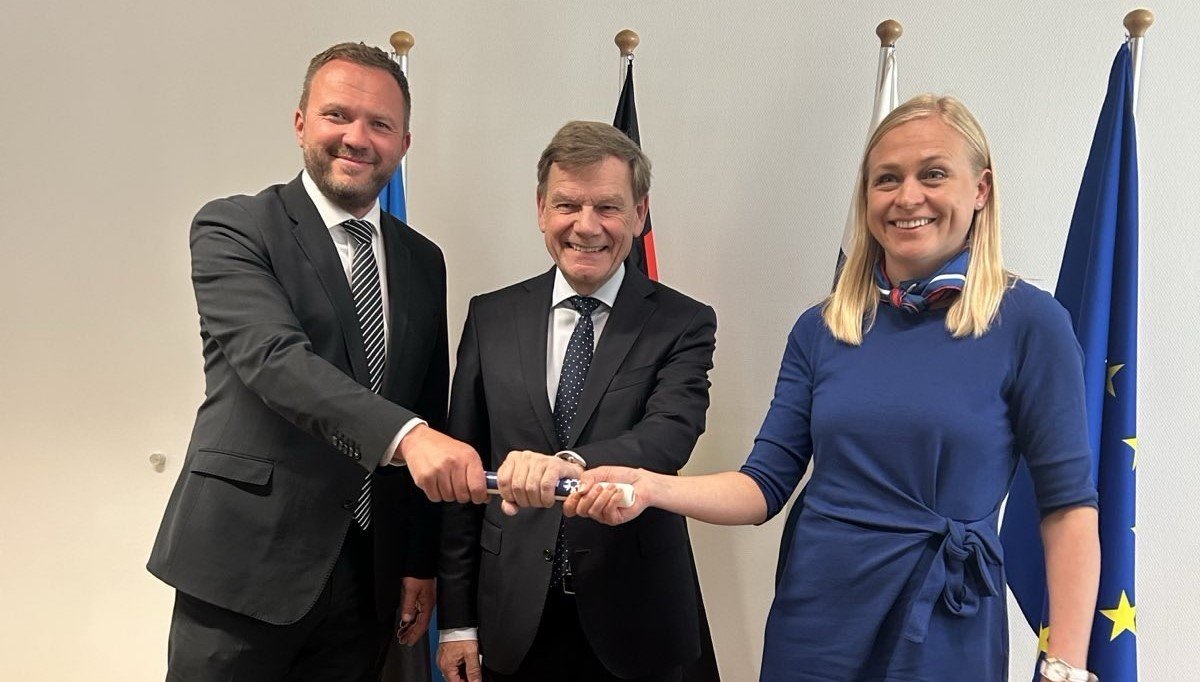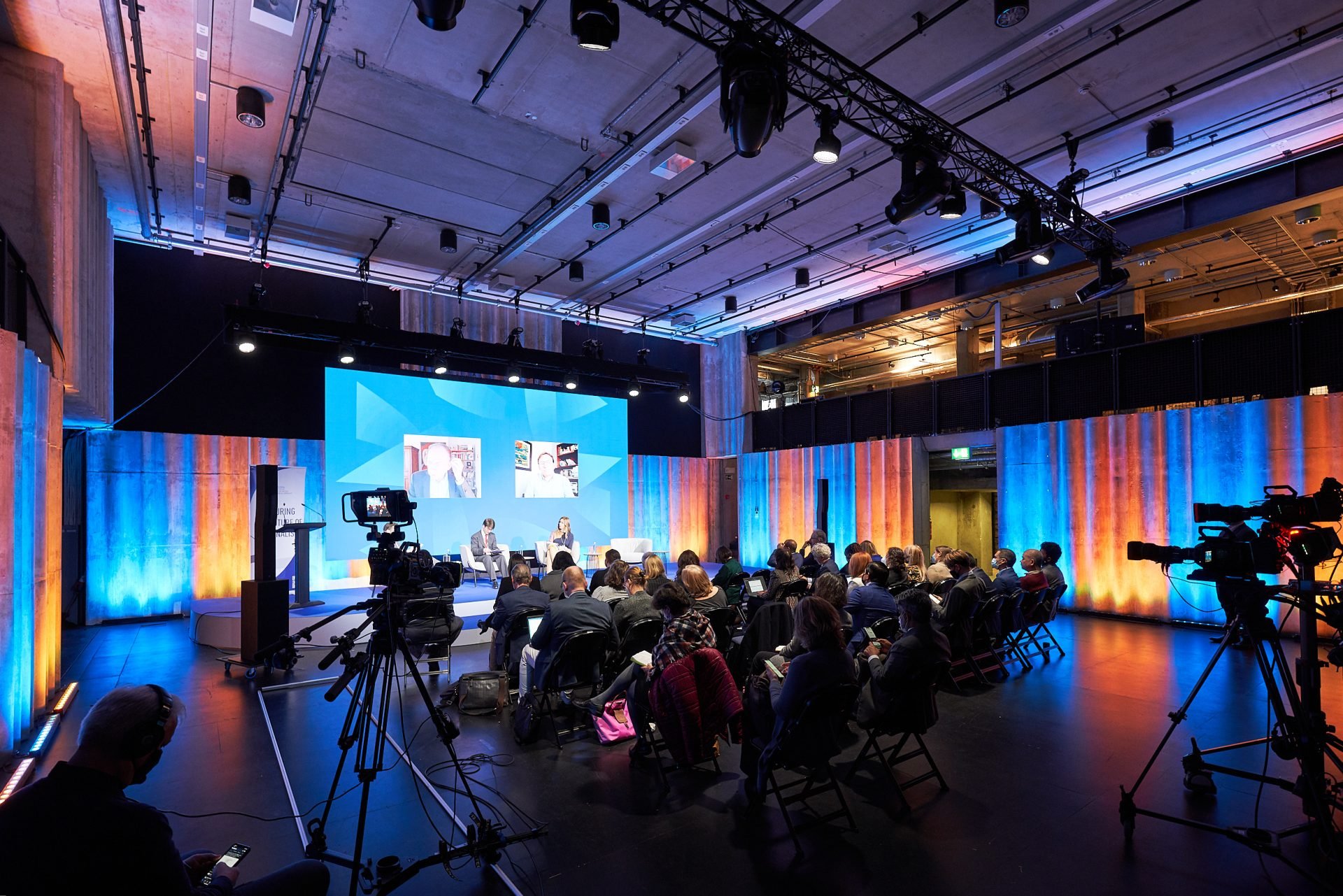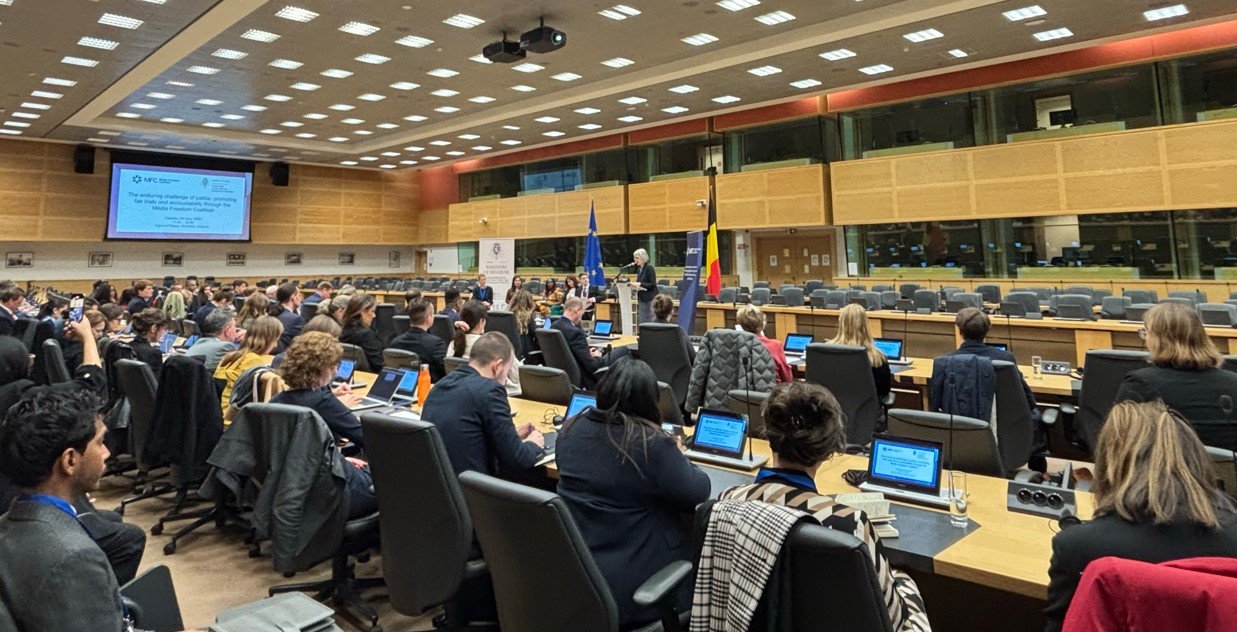
On the sidelines of World Press Freedom Day 2025, the MFC and Belgium hosted an event looking at how to protect journalists when they are accused of crimes, as well as how to tackle impunity for crimes against them.
The event took place on May 6th at Egmont Palace in Brussels, Belgium, the day before UNESCO’s signature event for World Press Freedom Day.
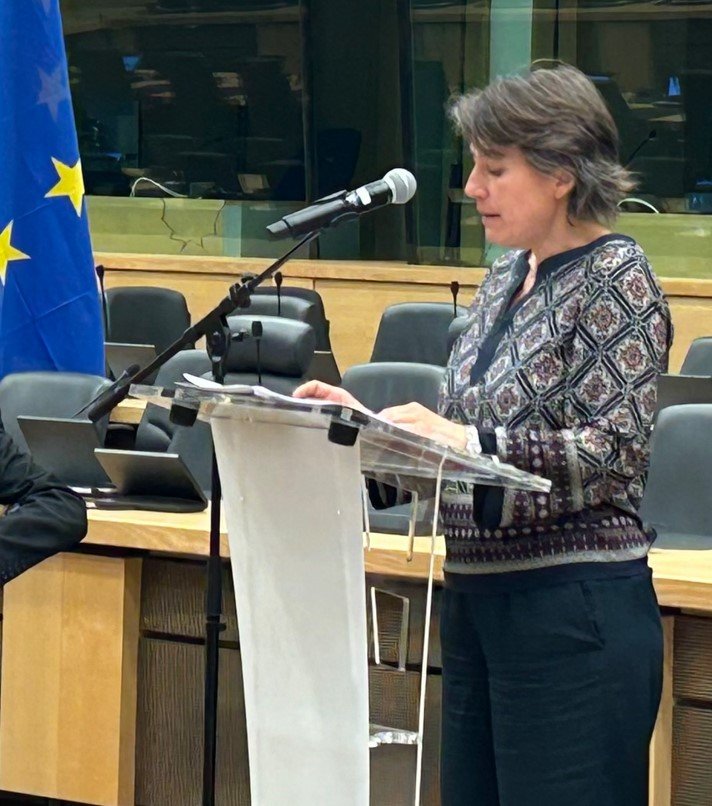
H.E. Theodora Gentzis, President of the Board of Directors of FPS Foreign Affairs of Belgium, opened the session by marking one year since Belgium joined the MFC.
She also said: “With today’s side event, Belgium aims to further advance the efforts at the international level to push back the grave lack of accountability for those who commit crimes against journalists, to ensure that justice is served and that the rule of law prevails.”
Claudia Schmitz, Head of Division for International Media Policy, Federal Foreign Office of the Federal Republic of Germany (MFC co-chair), added in her remarks: “Unhindered, critical and precise reporting by journalists is a fundamental part of democracy as it holds states, businesses and societies worldwide accountable for their actions.”
The ensuing panel discussion featured representatives of the media, the High Level Panel of Legal Experts on Media Freedom, the Consultative Network, and MFC member embassies.
Georgian journalist Irma Dimitradze began the panel discussion by spotlighting the media freedom situation in Georgia and conveying a message from her colleague, imprisoned journalist Mzia Amaglobeli: “I believe that as long as there are still people who will tell us that we are not alone, we will be able to preserve and develop both our profession and country.” (Watch the full message being delivered here.)
Embassies of MFC member countries in Georgia have spoken out on Amaglobeli’s case, and have also monitored her trial. Speaking about trial monitoring, Dimitradze said that while she was initially sceptical of its effects, she found out that it matters: “When the people see that embassies in different countries, the Western countries, when they see ambassadors or embassy representatives from those countries come and attend and express their solidarity, they realise that something is wrong … so it’s really important.”
Jaymie Reyes from the Embassy of the Netherlands in the Philippines highlighted work that MFC member embassies have been doing to prevent cases against journalists from going to court.
She said: “The bulk of the cases that journalists actually face are libel or defamation cases in the Philippines. So what we do is support local media councils in several areas of the Philippines so that they can mediate at the first instance, so cases won’t progress any further.”
Expanding on the broader significance of such international presence and trial monitoring, Reyes emphasised, “it at least kind of helps level the playing field, it promotes transparency and we are there to also emphasise symbolically the need for accountability in these types of cases.”
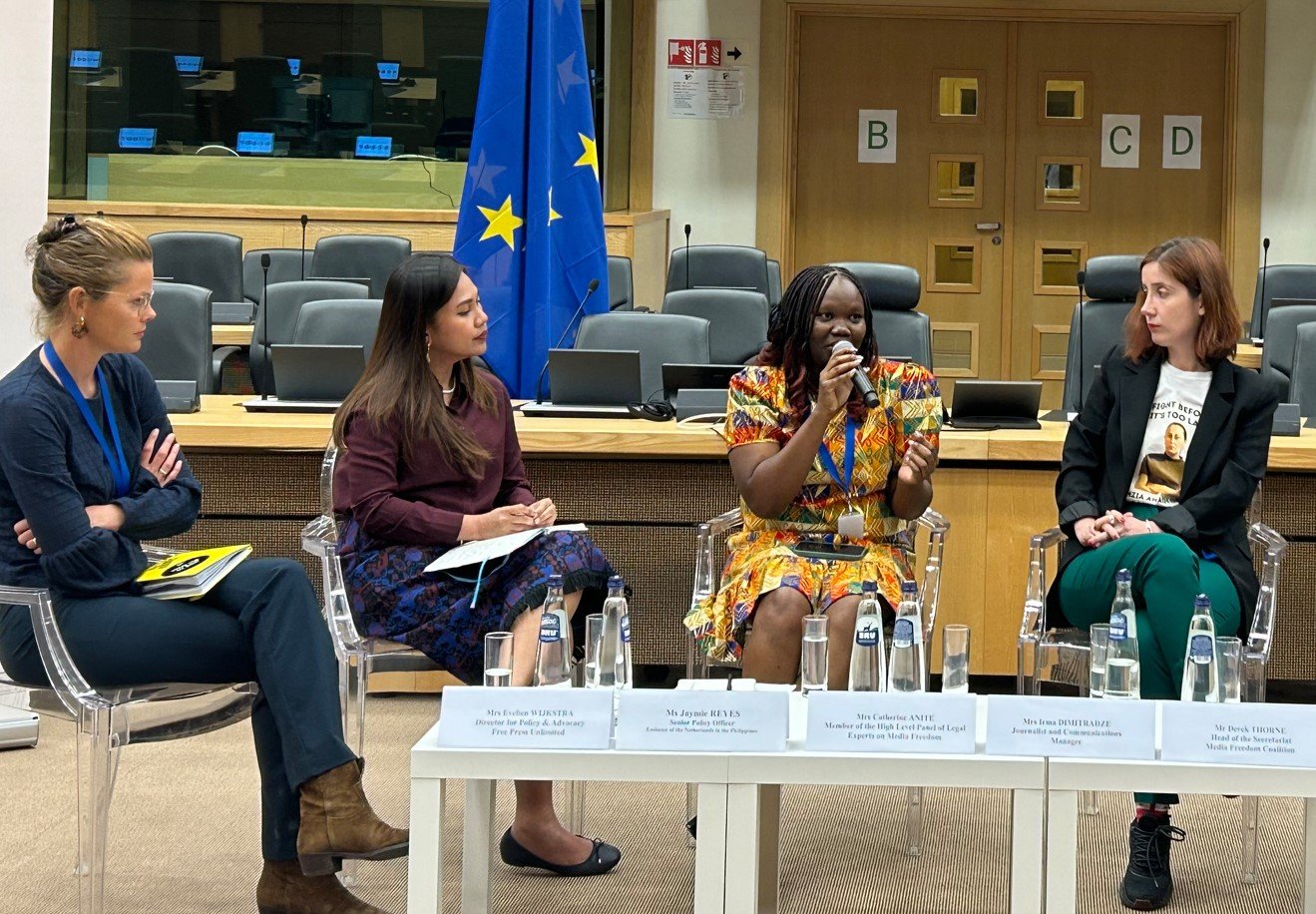
Catherine Anite of the High Level Panel of Legal Experts on Media Freedom spoke about the importance of training lawyers and judges on freedom of expression – something she has long experience of. “With UNESCO, we’ve trained several judicial officers across Africa. And some judges will come to you and say, ‘if I had this training before ruling on this case, I would have ruled differently’. We’re starting to see a trickle-down effect that many judicial officers who are attending trainings are ruling positively on freedom of expression.”
Speaking on the 2024 research study on an international task force on crimes against journalists, Evelien Wijkstra of Free Press Unlimited, a member of the Consultative Network, said: “It’s very clear from that study that investigations work. It’s a way to work with the authorities and show that justice can be achieved.” The study builds on the work of civil society as well as a report by the High Level Panel on promoting more effective investigations.
Closing remarks were delivered by Katrin Kivi, Ambassador at Large for Human Rights, Estonian Ministry of Foreign Affairs (MFC co-chair), and Dr Tawfik Jelassi, Assistant Director-General for Communication and Information, UNESCO.
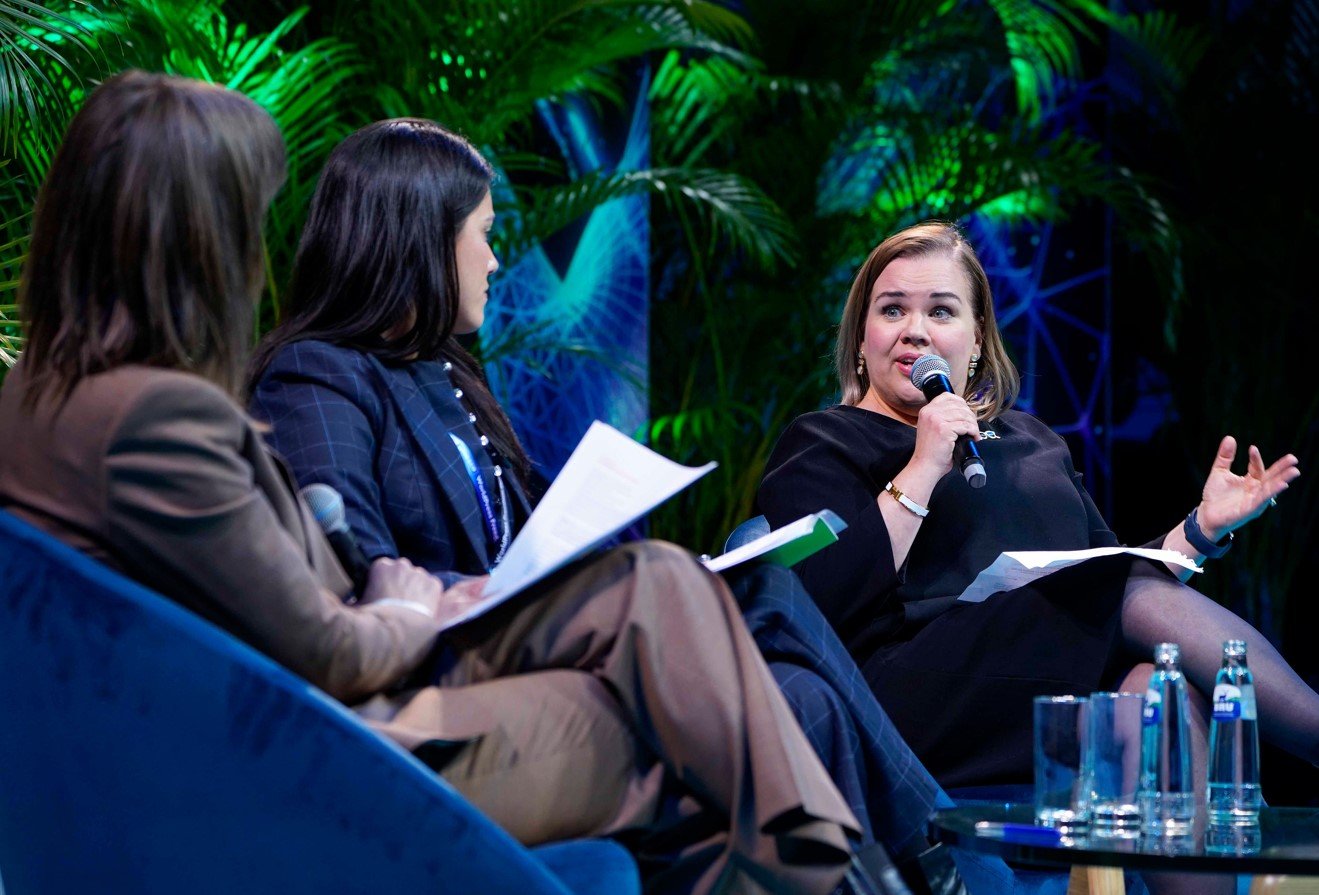
The MFC was also featured during UNESCO’s global signature event the following day.
Under the theme “Reporting in the Brave New World – The Impact of Artificial Intelligence on Press Freedom and the Media”, a session on “The Way Forward” featured representatives of two MFC member countries: Minna-Liina Lind, Undersecretary for Global Affairs at the Estonian Foreign Ministry (MFC co-chair) and Nicole Cardoch, Undersecretary General of the Government of Chile.
Among other topics, they discussed the importance of digital and media literacy and collaboration through the MFC as well as the Freedom Online Coalition. Watch their discussion here.
